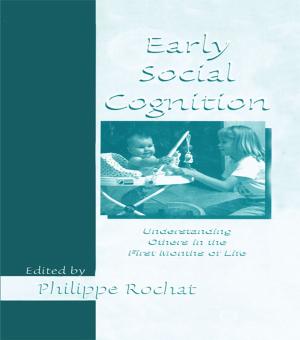Language Teaching
Integrational Linguistic Approaches
Nonfiction, Reference & Language, Language Arts, Study & Teaching, Linguistics| Author: | ISBN: | 9781135907563 | |
| Publisher: | Taylor and Francis | Publication: | January 13, 2009 |
| Imprint: | Routledge | Language: | English |
| Author: | |
| ISBN: | 9781135907563 |
| Publisher: | Taylor and Francis |
| Publication: | January 13, 2009 |
| Imprint: | Routledge |
| Language: | English |
This book demonstrates the relevance of an integrational linguistic perspective to a practical, real-world need, namely the learning of languages. Integrational linguistics’ shunning of both realist and structuralist theories of language, its commitment to an unwavering attention to the perspective of the language user, and its adherence to a semiology in which signs are the situated products of interactants interpretive behaviour, mean that it radically reconceptualizes language learning and language teaching. Detractors have implied that IL is so ‘philosophical’ or ‘theoretical’ an exercise that it has no useful bearing on the practical problems of language learning. These papers refute that misconception by demonstrating how an IL stance can help disentangle the conflicting considerations and contradictory assumptions that arise in a host of language teaching situations: first, second- and foreign-language classrooms in a diversity of settings (including India, Australia, the United States, and Hong Kong), with different age-groups of students, whether the focus is on speech or writing, and in more informal settings.
This book demonstrates the relevance of an integrational linguistic perspective to a practical, real-world need, namely the learning of languages. Integrational linguistics’ shunning of both realist and structuralist theories of language, its commitment to an unwavering attention to the perspective of the language user, and its adherence to a semiology in which signs are the situated products of interactants interpretive behaviour, mean that it radically reconceptualizes language learning and language teaching. Detractors have implied that IL is so ‘philosophical’ or ‘theoretical’ an exercise that it has no useful bearing on the practical problems of language learning. These papers refute that misconception by demonstrating how an IL stance can help disentangle the conflicting considerations and contradictory assumptions that arise in a host of language teaching situations: first, second- and foreign-language classrooms in a diversity of settings (including India, Australia, the United States, and Hong Kong), with different age-groups of students, whether the focus is on speech or writing, and in more informal settings.















